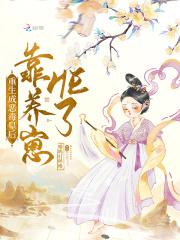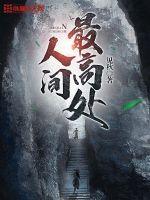妙笔文学网>安徒生童话最好的中文译本 > 第1章 皇帝的新装 The Emperors New Suit(第1页)
第1章 皇帝的新装 The Emperors New Suit(第1页)
《皇帝的新装》,1837年
theEmperor’sNewSuit,1837
---
安徒生所写的这个讲述说实话的孩子的故事赢得了许多赞赏者,因为它有力地歌颂了青春和纯真。
Andersen’staleofthetruth-speakingchildhaswonmanyadmirersbecauseitpayspowerfultributetoyouthandinnocence.
“当我还是个孩子的时候,”历史学家露丝?罗森写道,“我最喜欢的故事是《皇帝的新装》。一群成年人赞扬皇帝的新衣橱,但是一个孩子脱口说出了真相:
“whenIwasachild,”historianRuthRosenwrites,“myfavoritestorywas‘theEmperor’sNewclothes.’AchorusofadultspraisestheEmperor’snewwardrobe,butachildblurtsoutthetruth:
皇帝实际上是完全赤裸的。
theEmperorisinfactstarknaked.
从这个故事中,我了解到成年人可能会被胁迫而认可各种胡言乱语。”
Fromthistale,Ilearnedthatadultscouldbeintimidatedintoendorsingallkindsofflummery.”
安徒生的这个故事包含着许多可能的教训,而且每个读者似乎都从中得到不同的信息。
Andersen’staleisencodedwithmanypossiblelessons,andeveryreaderseemstotakeadifferentmessagefromit.
对于认知科学家史蒂文?平克来说,这个故事提供了一个“关于集体幽默的颠覆力量的美妙寓言”,揭示了人多力量大以及笑声发出的“不自觉、破坏性和有感染力的信号”的力量。
ForthecognitivescientistStevenpinker,thestoryoffersa“niceparableofthesubversivepowerofcollectivehumor,”revealingthestrengththatesinnumbersaswellasthepowerofthe“involuntary,disruptive,andcontagioussignal”sentbylaughter.
安徒生故事中的孩子,无礼、无畏且充满活力,即使成年人——恭敬、害怕且缺乏安全感——太容易屈服于欺骗,他也向权势说出真相。
thechildinAndersen’sstory,whoisirreverent,fearless,andspirited,speakstruthtopowerevenasadults—deferential,intimidated,andinsecure—succumballtooeasilytodeception.
孩子的声音使人们的注意力从故事中被描述为“美丽的”、“可爱的”、“迷人的”、“无价的”、“精致的”、“非凡的”、“惊人的”、“极好的”、“壮丽的”、“卓越的”和“精美的”东西上转移开了。
thevoiceofthechildhasdivertedsignificantattentionfromsomethinginthetalethatisdescribedas“beautiful,”“lovely,”“enchanting,”“priceless,”“exquisite,”“extraordinary,”“amazing,”“magnifique,”“splendid,”“superb,”and“delicate.”
虽然“可爱的”是安徒生最喜欢的词之一,并且被他反复使用,但在一个不到两千字的故事中发现这个词及其变体被如此频繁地使用,还是有点令人惊讶。
Although“lovely”wasoneofAndersen’sfavoritewordsandwasusedbyhimrepeatedly,itstillesassomethingofasurprisetofindthattermanditsvariantsusedsoofteninastorywithlessthantwothousandwords.
更令人惊讶的是,这些形容词都描述了看不见的东西,一种不存在的布料和衣服。
Anditisevenmoreastonishingthatthoseadjectivesalldescribesomethinginvisible,aclothandclothingthatdonotexist.
正如故事的最后几句话告诉我们的那样,皇帝的拖裾,就像他的衣服一样,“根本不存在”。
theEmperor’strain,likehisclothing,are“notthereatall,”asthelastwordsofthetaletellus.
这个集子中的第一个故事充分说明了安徒生的艺术。
thefirststoryinthiscollectionspeaksvolumesaboutAndersen’sart.
安徒生仅仅用文字就诱使美好的事物产生,他创造出会唱歌的夜莺、自己跳舞的鞋子、充满生命力的大理石雕像、挂满金色果实而闪闪发光的水下花园——甚至还有一块“根本不存在”的布。
Usingnothingbutwordstolureobjectsofbeautyintobeing,Andersencreatesnightingalesthatsing,shoesthatdanceontheirown,marblestatuesthatpulsewithlife,underwatergardensthatglitterwithgoldenfruit—andevenacloththatis“notthereatall.”
在想象中,夜莺、鞋子、大理石雕像、花园和布都拥有一种辐射能量,使它们明显是真实的。
Inthemind’seye,thenightingale,theshoes,themarblestatue,thegardens,andtheclothpossessaradiantenergythatmakesthempalpablyreal.
虽然看不见且“根本不存在”,但它们仍然迷人、精致且可爱。
Invisibleand“notthereatall,”theystillremainenchanting,exquisite,andlovely.
这些文字有某种激发力量,能让我们想象安徒生艺术构建的世界。
thewordshaveacertainignitionpowerthatallowsustoimaginetheworldconstructedbyAndersen’sart.
《皇帝的新装》已经被翻译成一百多种语言,并且仍然引人入胜并激发模仿,正如最近出版的《皇帝的新装:全明星插图重述经典童话》所表明的那样。
“theEmperor’sNewclothes”hasbeentranslatedintooverahundredlanguagesandcontinuestofascinateandinspireimitation,astherecentpublicationtheEmperor’sNewclothes:AnAll-StarIllustratedRetellingoftheclassicFairytalesuggests.
在那本书中,露丝?韦斯特海默博士从宫廷御医的角度重新讲述这个故事;
Inthatvolume,dr.Ruthwestheimerrefashionsthestorybynarratingitfromthepointofviewofanimperialphysician;
卡尔文?克莱恩宣称“没有什么能介于我和我的皇帝之间!”;
请勿开启浏览器阅读模式,否则将导致章节内容缺失及无法阅读下一章。
相邻推荐:禅宗小子 她的白月光 两界交易,开局泡面换人参 苦修三十年才突破?我直接献祭速通! 纨绔世子爷 别惹她,她可是蒋先生的小祖宗呀 我家小店通古今,我助女帝一统天下 穿成绝嗣皇帝早死的崽 无敌天医 生而为人,于世 恋综:参加节目,前妻慌了 《我在东京当黄毛》 谷早陆川 迷宫内外 乡村小子的逆袭飞升路 离婚后,陆小姐马甲又掉了 开局女子监狱修仙:出狱秒杀一切 历史直播:开局创死一位老祖宗 年代文:从四合院秦家庄开局 凡人修仙之灵药铺 综漫:库来西库,堂堂复活!


